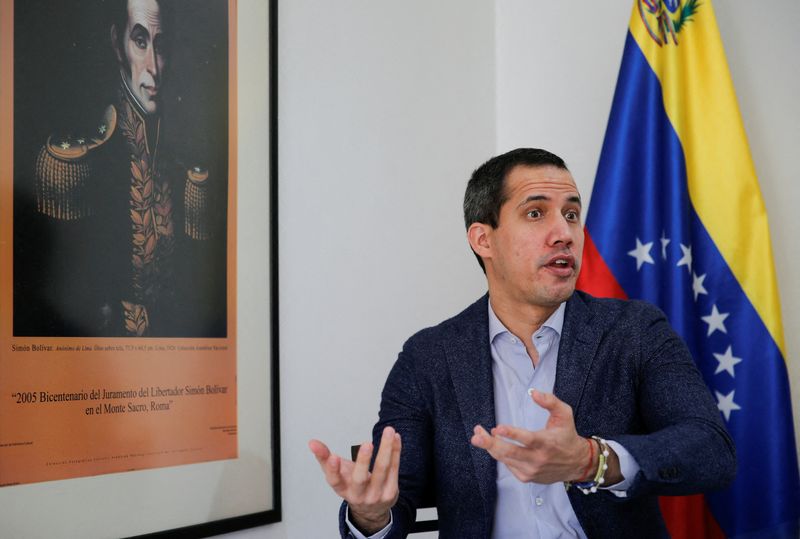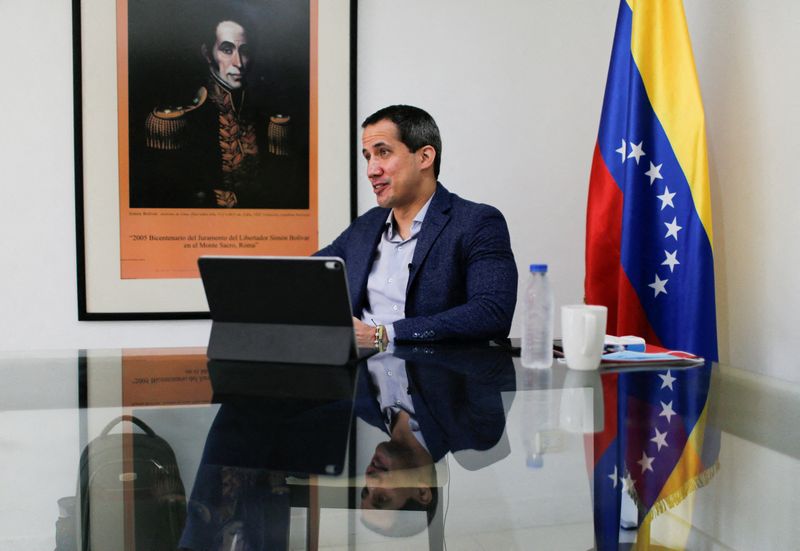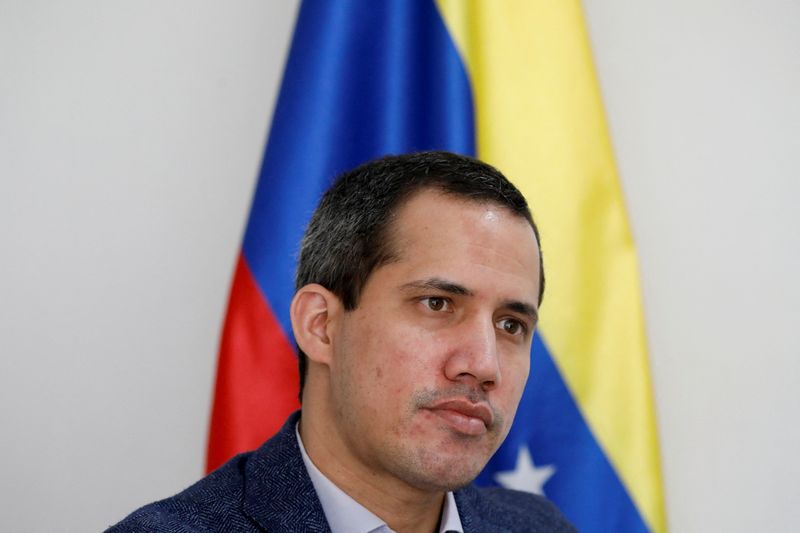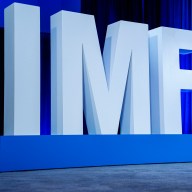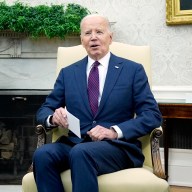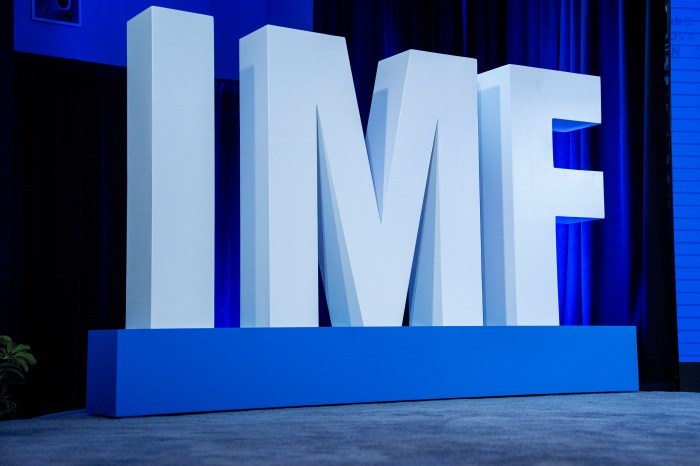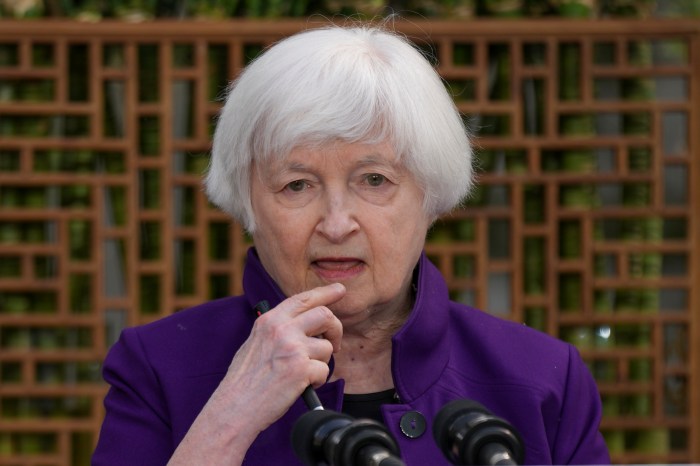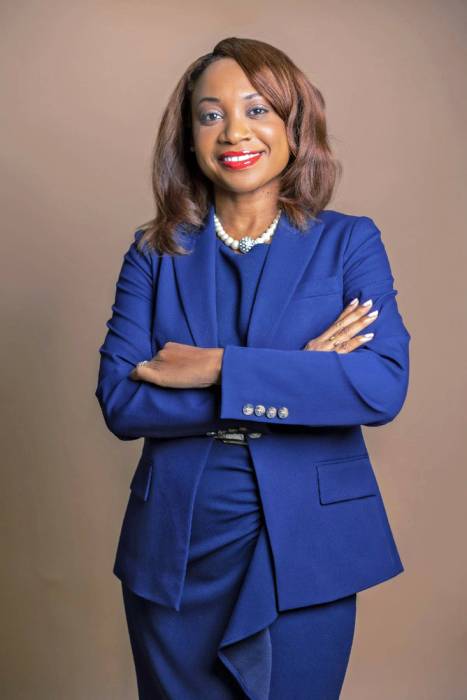CARACAS (Reuters) – A U.S. offer to loosen sanctions against Venezuela’s government “is not indefinite” and could be reversed if the ruling party does not return to talks with the opposition, opposition leader Juan Guaido said on Monday.
In October, delegates from the administration of President Nicolas Maduro backed out of talks https://www.reuters.com/world/americas/maduro-envoy-alex-saab-extradited-us-cape-verde-radio-2021-10-16 meant to provide a solution to the country’s long-running political and economic crisis, after Venezuelan government envoy Alex Saab was extradited by Cape Verde to the United States on money laundering charges.
The opposition has repeatedly called for a restart to the negotiations, while Washington has said previously it is serious about revising sanctions if there are changes in Venezuela, but also serious about possibly adding additional sanctions if not.
“We are willing to revise the sanctions and we have ratified that with a view to an agreement. If they don’t sit at the negotiating table again, the offer is not indefinite,” Guaido told Reuters in an interview.
“There is another side to the coin: the possibility of tightening sanctions, diplomatic actions, if a political solution to the conflict is not coming.”
He added, without elaborating, that hardened sanctions would be “individual sanctions initially”. He said a restart in the negotiations remains possible.
Neither the Venezuelan government nor the U.S. State Department responded immediately to requests for comment.
The United States recognized Guaido as Venezuela’s legitimate leader in 2019, amid accusations of fraud during Maduro’s 2018 re-election.
Dozens of other countries also initially recognized Guaido, but since the 2021 legislative election a number of countries and the European Union have backed him only as a leading opposition figure.
Washington’s recognition allowed the opposition to assume control of Venezuelan foreign assets like Citgo, a subsidiary of state oil company PDVSA. U.S. authorities have protected those foreign assets from creditors seeking debt re-payments.
“For all the creditors, including China, the best alternative is the recovery of democracy in Venezuela, the reactivation of the oil sector, judicial security,” Guaido said.
Though the Venezuelan government’s debt – estimated by analysts to be some $150 billion – outweighs its liquid assets at present, the intention is to pay it down as the country’s credit capacity improves, Guaido said.
He criticized investors and businesses who have called for changes to sanctions so that debt payments and imports can resume, saying the effort is misguided.
The opposition is looking to repair internal disagreements ahead of a presidential election scheduled for 2024, though Maduro could move the date forward as he did in 2018.
An earlier contest would suit the opposition, Guaido said, as the ruling party had lost support, tallying just 4 million votes for its candidates in regional elections last year compared to eight million supporters in 2012’s presidential vote.
Though opposition parties were broadly defeated in the regional votes in November, they did notch a victory for the governorship of Barinas, traditionally a ruling party stronghold, in a re-run this month.
Guaido said he understands opposition supporters may feel apathetic after years of anti-government protests, though he has urged people to join a Feb. 12 march https://www.reuters.com/world/americas/venezuelan-oppositions-guaido-calls-february-protest-2022-01-23.
“The longing Venezuelans have is to get out of the dictatorship and we haven’t delivered,” he said. “That’s a reality and obviously will create frustration.”
(Reporting by Vivian Sequera and Mayela Armas; Writing by Julia Symmes Cobb; Editing by Daniel Flynn and Mark Heinrich)

